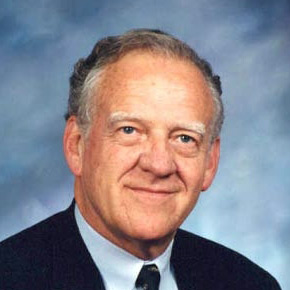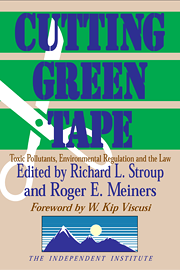Speaking to a very receptive Elyria, Ohio, crowd a few months ago, President Obama took off the gloves and promised that he was ready to fight to provide more jobs, improved education, and security from the threat of bankruptcy for homeowners. Turning his attention to the Wall Street bankers, who had just announced another round of large executive bonuses and high profits made from managing their excess reserves, he said: “I just want to have rules in place so that when these guys make dumb decisions, you don’t end up having to foot the bill. I don’t mind having a fight.” Earlier, referring to TARP funds invested in banks, Obama had said: “If the big financial firms can afford massive bonuses, they can afford to pay back the American people.” A White House spokesman had said the bankers just don’t “seem to get it.” At the time, two-thirds of the TARP money had been repaid early with interest.
Maybe they do get it. Maybe, just maybe, we, the electorate, and our political representatives are the ones who don’t get it.
Bailout Incentives
The current outrage about banker behavior coming from Mr. Obama and the White House brings back memories of my own behavior when my two teenage boys were regularly coming home late at night in the family’s second car with just enough gas fumes left in the tank to make it down the driveway. “When are you going to understand?” I would shout the next morning after being frustrated in an attempt to get a car out of the driveway to get to work. “Why do you have to be so selfish? Don’t you know there are other people in the family who need to be able to get around, too? Don’t you get it?”
After giving one more sanctimonious lecture to them about caring for others, we would go our separate ways–until the next time, when the car ran out of gas with one of the boys halfway home from town.
You see, trying to be a providential father, I had a rule about gasoline. I provided one tank of gas a week for my two sons’ use. And they used every drop of it.
After a few more gas-outs, I began to get it. Instead of ranting and raving about their selfish behavior, I changed the rule. I began giving them the dollar equivalent of a tank of gasoline each week. Guess what? No more out-of-gas car in the driveway. No more running out of gas on the way home. In fact, they pretty much quit using the car. They walked or called a friend to pick them up.
They had money, and money was better than gasoline. And when there was a gas-out, they paid. Finally, I really got smart. Welfare turned to workfare. Many of my problems about gas and cars went away.
The problem for Obama with the bankers is a lot like the situation I faced with my sons. It’s about bailout incentives. This is not a story about good and evil, or selfish and unselfish behavior at all, even though casting it that way plays well on the hustings.
Cousin Jack’s Shack
Economists and others call the problem “moral hazard,” but let’s not get caught up in jargon. The essence of the problem is captured in the lyrics of Irving Berlin’s 1940s’ song, “Doin’ What Comes Natur’lly.” The relevant refrain goes like this:
Cousin Jack insured his shack
And now he plays with matches
He’ll collect just wait and see
Doin’ what comes natur’lly
Doin’ what comes natur’lly
Of course, no fire insurance company will write a policy that covers the full replacement cost of a home or shack. The owner must bear a substantial part of the risk; he must coinsure. Insurance companies are also pretty careful about writing a policy in the first place. Casualty insurance contracts are short, and if the risks are high and the exposure large, the insurance folks will be around frequently to inspect and give instructions about how to behave. (But of course, all this tends to change when the insurance companies get government bailouts.)
Consider some of the institutions surrounding consumer banking. Yes, there is FDIC insurance, and yes, FDIC regulators check frequently in attempts to make certain the car does not run out of gas. But no bank voluntarily buys deposit insurance; banks are required to buy it. And there is no competition for the business. Before the days of government deposit insurance, the owners of the banks were personally liable to depositors; they often listed their personal guarantees in bank advertisements. Then, up until the 1980s, there were state-operated deposit insurance companies as well as the federal program that began in the Great Depression, but the state programs got in trouble too.
Government insurance companies are usually not price-savvy; they do not respond to shareholders; they pay no shareholder dividends; they hardly ever modulate insurance premiums to reflect risky behavior; they do not run the risk of being taken over by other firms as a result of financial market monitoring. In short, these institutions are not bottom-line driven; they face no bankruptcy constraints. The FDIC is a political creature living in a commercial halfway house.
When the deposit institutions got in trouble in the 1980s, the politicians gave them another tank of gas, and they tended to use it. To make matters worse, following the great 2007 credit-market meltdown, the politicians doubled the gas allocation. And deposit institutions responded accordingly. They wanted to drive a bit faster and more often, which is to say they tended to take on more risk. In an effort to offset the risky behavior, the regulators came around more frequently and frowned a lot more. Now the FDIC is mandating higher premiums paid three years in advance in an effort to cover Cousin Jack’s adverse behavior.
The presence of government-provided deposit insurance is the alpha, but certainly not the omega, of all that is troublesome with banking. In fact, even though deposit insurance guarantees the bulk of deposit institutions’ liabilities, the effects on Cousin Jack’s careless behavior begin to pale when compared with TARP and TARP-related events.
An Odd Kind of Regulated Public Utility
As noted, once the credit-market crisis came, government responded first by upping the ante on deposit insurance. That quieted the depositors’ panic, and Cousin Jack relaxed a bit. Then the politically elected and appointed rolled out a green carpet to troubled institutions with injections of cash, arranged marriages between strong and weaker firms–and, to make matters worse, began paying interest on the reserves provided. The banks got a 100 percent sure thing with interest. Cousin Jack was assured that gas would be no problem. So why not take the family on a much-needed vacation? Bonuses and pay became an issue.
With incentives askew and bankers responding predictably, Obama frowned, gave the bankers sanctimonious lectures, and ordered his pay czar and the Federal Reserve chief to put the screws on executive pay. He then said the bankers needed to pay a tax on their uninsured liabilities, just to keep them honest. U.S. banks now face a complex of regulatory spaghetti. What they can lend, how they lend, and to whom they lend are regulated with greater stringency. How they pay and how much they pay is regulated. How much and what kind of debt they incur are regulated. And most recently, what they do with excess capital to increase earnings is further regulated. Yet while the spaghetti thickens, there is a lot of uncertainty as to which financial institutions will get caught in the mix, when, and how. Regulatory uncertainty takes its toll on decision-makers: If in doubt, keep quiet, lay low, and avoid risk. The banks are on the way to becoming a strange breed of regulated public utilities without the benefit of due process.
There is talk about financial institution reform, but so far, I’ve heard no conversation about letting the boys buy their own gasoline.
Reprinted with permission. © 2010, Foundation for Economic Education










